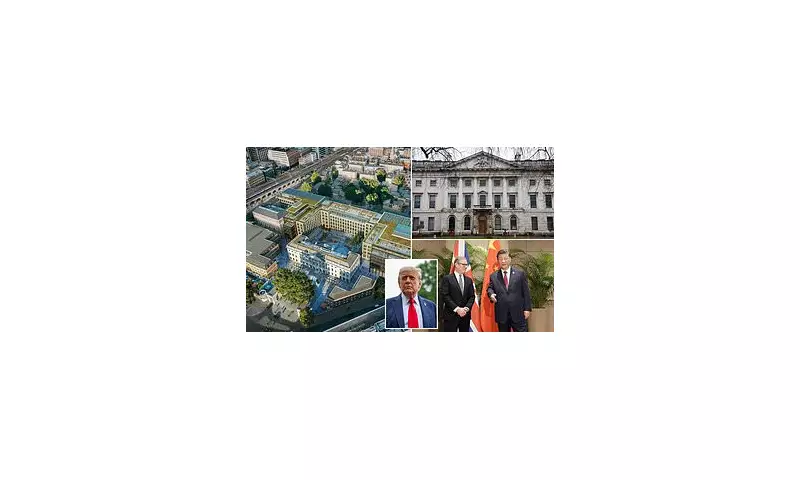
The new Labour government is facing intense scrutiny and accusations of dithering over a major diplomatic decision, as a £255 million deal for China to build a new mega-embassy in London appears to be in limbo.
Ministers are being accused of causing a significant delay in the final approval for the sale of the historic Royal Mint Court site to the Chinese government. The previous Conservative administration had agreed to the sale, but the process has seemingly stalled since Labour took power.
A Site of Immense Strategic Value
The proposed location is no ordinary plot of land. The Royal Mint Court in the heart of London is a highly sensitive site, directly adjacent to the MI6 headquarters, the Houses of Parliament, and the Tower of London. This proximity has raised profound security concerns among MPs and intelligence experts.
Critics argue that allowing a foreign state, particularly one with a complex relationship with the UK like China, to establish such a large diplomatic compound so close to Britain's intelligence nerve centre is an unacceptable risk.
Conservative Backlash and Security Warnings
Prominent Tory figures have led the charge against the deal. Sir Iain Duncan Smith, the former Conservative leader, has been vocal in his opposition, labelling the potential embassy a 'authoritarian regime's outpost' on the doorstep of the UK's democratic institutions.
He and other MPs have warned that the scale of the proposed embassy could facilitate espionage activities, potentially threatening national security. The government's current hesitation suggests these warnings may have found a receptive audience within the new administration.
Diplomatic Tensions and the Government's Dilemma
The delay is threatening to ignite a fresh diplomatic dispute with Beijing. The Chinese government is said to be growing increasingly frustrated with the holdup after having agreed to the substantial purchase price.
For Prime Minister Keir Starmer and his team, the situation presents a difficult balancing act. They must weigh the economic benefits of the sale and the desire for stable international relations against mounting political pressure and genuine security apprehensions. The government's official line is that it is 'considering the available information', but has refused to provide a timeline for a final decision.
This postponement has effectively placed one of the most significant and controversial diplomatic property deals in recent memory on hold, leaving the future of the iconic Royal Mint Court site uncertain and a major row with China brewing.





